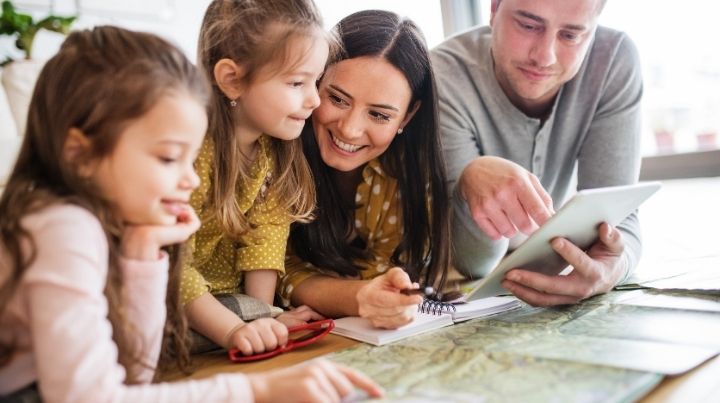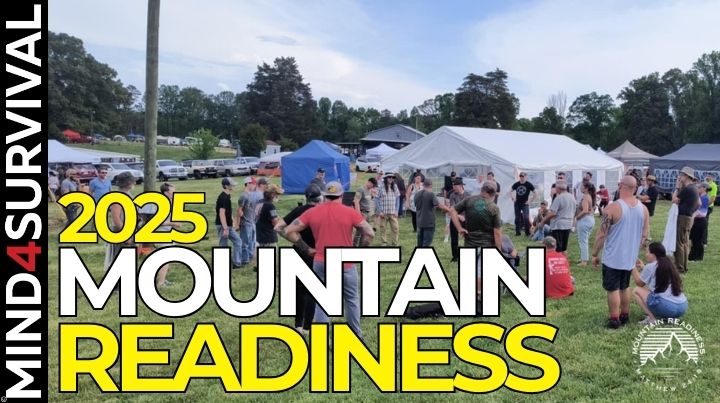Disaster Preparedness at Home: Get Ready Together

Today, let's talk about disaster preparedness at home. Many businesses and government agencies already have disaster preparedness plans, but the readiness shouldn't stop there.
Disaster preparedness for families doesn't require rocket science. What it does need is planning, implementation, and training. When completed, proper disaster preparedness for families helps people prepare both mentally and physically for challenging emergency and disaster situations.
Disaster Preparedness at Home Requires a Plan
Anyone who's ever been in the military (and a lot of other folks too) has heard the line, “Prior Planning Prevents Piss Poor Performance.” Well, it's not just true in the military.
Making a plan establishes a baseline for you to operate from when disaster strikes. To create this baseline, you must first identify the potential risks facing you and your family. Once you've identified the various emergency and disaster scenarios, you next need to think through as many likely responses as possible. With your potential responses thought out, you will be set to create your plan.
Creating your plan for disaster preparedness at home is the meat and potatoes of improving your family's safety and security. The first step to building your plan is to review your potential responses and consolidate those into an action plan. One key to creating your action plan is to keep it flexible so that you can effectively respond to changing and unpredictable situations.
Another key is to ensure your family understands what to do if separated when an emergency or disaster happens. Separated family members need to know how to get ahold of each other and should consider disruptions to communication systems. Depending on the size of the situation, they should also know how to get to pre-selected local and distant meet-up locations.
Lastly, with your plan set, you need to determine what supplies are essential to your success. Once you know what you need, you'll need to know how much of it is needed. After all, planning for a Hurricane Katrina type of event does you no good if you don't have enough food and clean water to last for several days (or longer) on your own.
Implementation
Implementation is critical to ensuring your plan runs as smoothly as possible. The most important aspect of disaster preparedness at home is discussing the plan with your family. When reviewing the plan, you need to talk about the various types of disasters that may affect your family.
You will also need to explain why the plan is necessary. Doing so will help everyone understand why you are planning and preparing. Keep in mind, when discussing this with your children, it is crucial that you avoid scaring them. Also, don't forget to ask for your family's feedback about the plan. You never know; they may add an excellent idea. Additionally, here is a great youth preparedness resource with sections geared towards small children, teenagers, and families.
Another essential part of implementation is to discuss your plan with others upon who you may rely upon during an emergency or disaster. For example, if your plan includes heading to Uncle Bill's house in the mountains, you may want to discuss it with him first. With good communication, you will resolve potential problems and possibly identify ones you didn't know existed.
Training
Aristotle knew what he was talking about when he said, “Excellence is an art won by training and habituation.”
Once your plan is ready to go, it's time for you to train, train, and train some more. Training and practicing your plan provide you with the opportunity to test and evaluate it. As you do so, your family will also become more familiar with it. Then, they will be better able to deal with the situation when it happens.
Remember, when training, you should follow the crawl, walk, run philosophy. Begin your training by talking through the plan and asking your family questions about the plan's details. Doing so will reinforce it in everyone's mind. Next, conduct a walkthrough of the entire exercise so that everybody sees it unfold in slow motion.
Finally, run through the plan at a safe but faster pace with less warning. The trick is to ratchet up the stress, so when a real event happens, everyone is ready to leap into action.
The Bottom Line on Disaster Preparedness at Home
Don't forget to practice with any supplies and equipment that are part of your plan. After all, waiting until a disaster happens to find out that you don't know how to use your supplies and equipment exposes you and your family to increased risk. It's a risk that is easy to overcome with a little effort. So, make it happen.
Stay safe,

Related Articles
FREE Guide
Read the Best Seller
Join Mind4Survival
Stay informed by joining the Mind4Survival! 100% Secure! 0% Spam!
Affiliate Disclosure...
Mind4Survival is a free, reader-supported information resource. If you make a purchase through our link, we may, at no cost to you, receive an affiliate commission.
Do You Want To Be Ready No Matter What?

Download our free 39-page guide with interactive, 7-Day Emergency Kit Checklist and take the first step toward real preparedness.
- Know exactly where to start.
- Save time and money.
- How-to build a complete Basic Emergency Kit.
- Level up your safety and security.
Join Mind4Survival
Stay informed by joining the Mind4Survival! 100% Secure! 0% Spam!





